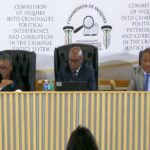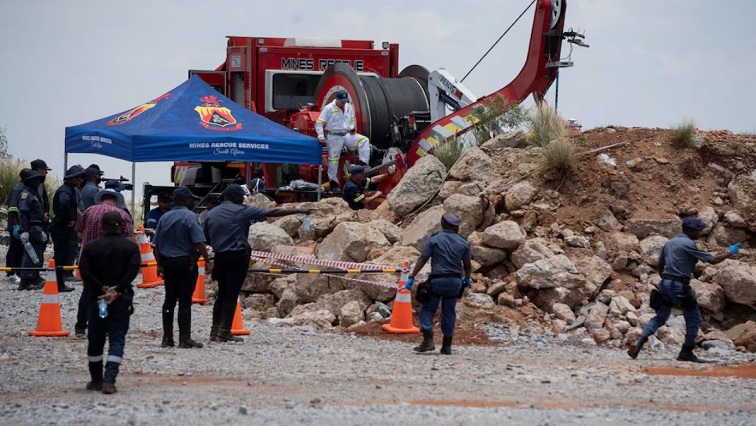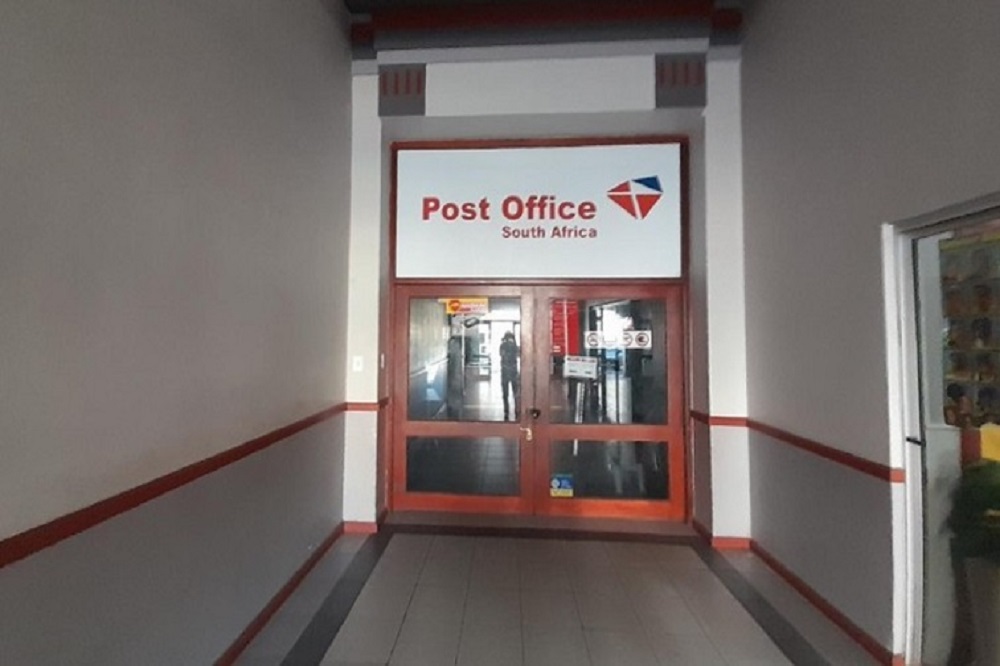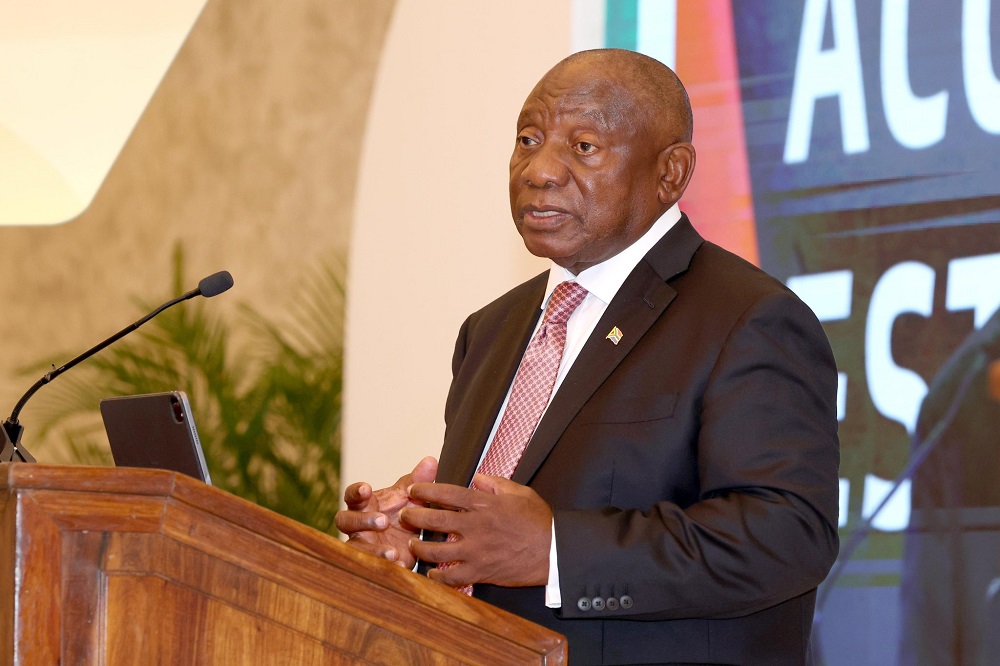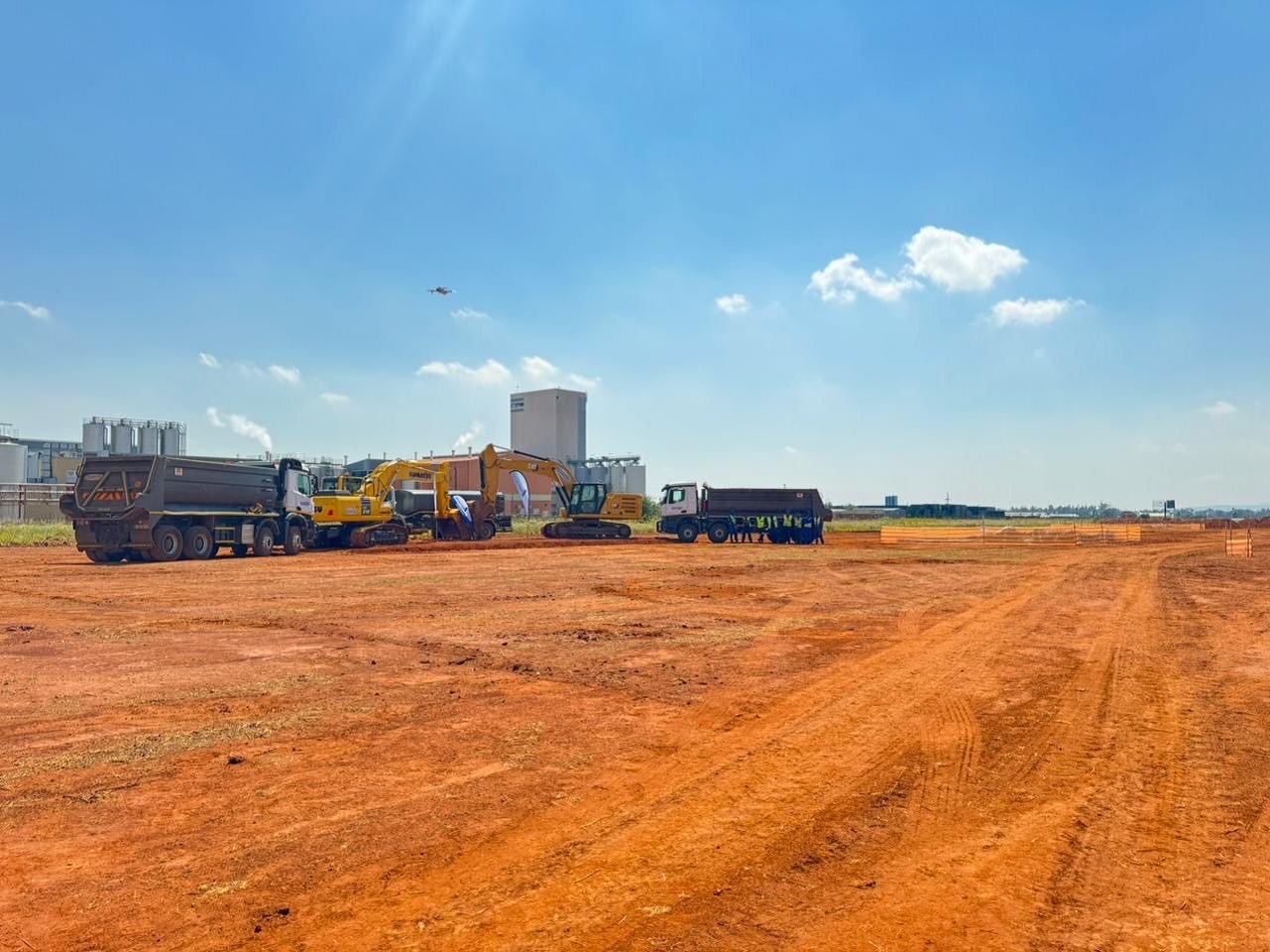-
Members of the South African police, patrol as they guard the mine shaft where rescue operations are ongoing as attempts are made to rescue illegal miners who have been underground for months in Stilfontein, South Africa, January 14, 2025.
The 2022 Policy on Artisanal and Small Scale Mining is insufficient to deal with the scourge of illegal mining. This is the view of some MPs on Parliament’s Portfolio Committee on Mineral and Petroleum Resources.
Shortly after the beginning of operation Vala Umgodi at Stilfontein, Minister Gwede Mantashe and top officials of his department appeared before Parliament on the 19th of November last year.
They told MPs about the challenges of equipping small-scale and artisanal miners – challenges in curbing illegal mining, and legislation on the scourge.
The Department of Mineral Resources said the policy was gazetted in 2022 to regulate artisanal and small-scale mining. The Mineral and Petroleum Resources Development Act of 2002 did not cover this sector.
However, estimates are that there are between 30 000 and 50 000 artisanal miners, and the department explained that it wants to bring this sector into the mainstream economy.
“With the policy in place, its objective also wants to promote optimal and orderly exploitation of mineral resources for the benefit of all, and we want to develop mechanisms to formalize the sector’s operation so that we can bring them into the mainstream economy and we start seeing their contributions,” DG Department of Petroleum and Mineral Resources, Jacob Mbele stressed.
While some MPs said the department needs to give more support to artisanal miners who cannot fill out application forms. The department received 114 applications for funding; only 20 were approved.
Economic Freedom Fighters (EFF) MP Natasha Ntlangwini said, “Based on their presentation, the access of information communities having access to information is what we have seen. Where these mines are located, they are in small towns, so they are far away from your big cities where the department office is allocated. So, that was one of the questions and one of the answers that we will even write to them in written form so that they can give us an effective response.”
The department was careful to make a deliberate distinction between artisanal and illegal mining. There are no official figures, but some research papers have put the cost of illegal mining at around R14 billion annually.
The department’s briefing came at a time when police are urging illegal miners in Stilfontein, North West, to resurface.
Mantashe said, “Last week we were invited to a NATJOINTS meeting; we went to that meeting, and they gave us an analysis of their statistics. The majority of illegal miners are from Zimbabwe, followed by Mozambique, followed by Lesotho, followed by Malawi. Then there are sprinkles of SANS. Now, if you start looking at that and people make it a responsibility of our department to formalize that, I asked one person who asked me the question I asked: Should I give this permit to Zimbabweans, Mozambicans, and Lesotho citizens instead of doing artisanal mining for SANS, which I do. It’s something that we are doing; we’re focusing on SANS. We are not training Zimbabweans, Mozambicans, and Lesotho nationals to be artisanal miners, and that’s it, so there’s no link. It’s a criminal activity mainly dominated by foreign nationals, and it must be treated as such.”
Illegal Mining | Stilfontein mining tragedy:
Some committee members are of the view that the operationalisation of the 2022 policy alone is insufficient to curb illegal mining.
Democratic Alliance (DA) MP James Lorimer said, “The one thing that I’ve learnt is that the artisanal strategy is not going to solve our problem of illegal mining. This really, I mean, it has its good points, but it’s really just a business development scheme. If the department is right and there are 30-50 thousand illegal or artisanal miners out there, this is dealing with a tiny fraction of them, and the govt simply doesn’t have enough money to stop those activities, which means that the only way to stop those activities is through policing.”
Mineral Resources Committee Chair, ANC MP Mikateko Golden Mahlaule explained, “Before 2008 before the reviewal of mprda there was a clause that really uh made sure that people who are found to be illegally mining uh there’s a specific charge for that but when they were reviewing it I don’t know whether they were deliberate or not deliberate about it but that clause saw its way out of the mprda and it’s no longer there so the law now does not have teeth when it comes to that specific aspect and we are going to pay a particular focus either with the general amendment law or with the mprda I’m going to have a discussion with the chairperson of justice to deal with this issue once and for all there must be a criminal clause that speaks about criminality.”
The Department is set to introduce its own proposals to amend the 2002 Act, but this is in its infancy stages.
DISCUSSION: Illegal mining crisis in SA:

